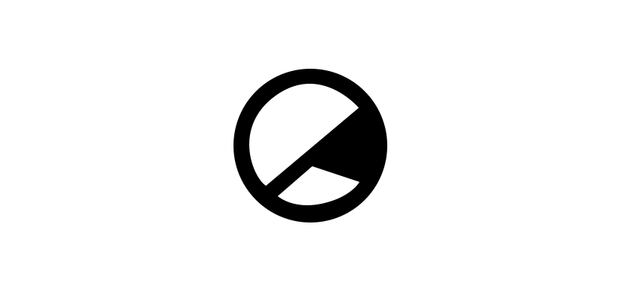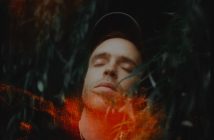He may only rank himself ‘around the 300 mark’ in the world’s best comedians, but Mark Watson is now one of the leading lights on the UK comedy circuit and a successful T.V presenter and novelist to boot. The warm and witty Bristolian tells The Edge about dealing with relentless touring, juggling numerous careers, and how we’ll have to wait until next Christmas for our stockings to be crammed ‘purely with Watson’…
When Watson answers his phone to The Edge on a bitter Tuesday morning, he is situated in Portsmouth, the latest leg of his meandering UK tour. In a week’s time he will be performing just 15 miles along the South Coast at the Southampton Guildhall. But not before covering Wolverhampton, Halifax and Liverpool in between. For Watson, this highly taxing, perhaps illogical way of touring is part-and-parcel of the stand-up life, with the aim of bringing his fast-paced brand of observational comedy to as many people he possibly can. As the family man toys with the possibility of ‘growing out’ of the touring lifestyle in our interview, it is just as well the proverbial irons are very much in the fire with regard to his career. From hosting his ITV 4 show Mark Watson Kicks Off to writing his latest novel Eleven, Watson’s self-assessment of being an ‘all-rounder’ seems more than justified. As The Edge investigates his past, present and future, the signs suggest we’ll be seeing, listening and reading Watson for some time to come…
Edge: People are currently talking of stand-up comedy being in something of a golden age at the moment due to its mainstream popularity. Do you see this as a positive you can capitalise on, or a negative that’s perhaps leading to a saturated, overly-competitive field?
Watson: Mostly positive, because I can go on wide-scale tours playing big venues and releasing DVDs and the like as there is much more appetite for what I do. The competition has never been tougher but I do think I’m one of the people who has benefitted from the genre opening up. Those touring the smaller clubs have probably been the victims recently, but for me it’s been pretty much all positive.
E: Is there anything you can pinpoint in your act that separates you from the pack?
W: I think I have a high level of interaction with my audience in my live shows and I also have a lot of projects on the go, such as books and blogs. So perhaps what sets me apart is not necessarily anything in my act, but the fact that my act is only part of what I do.
E: What specific field you see yourself focusing on the most in 10 years time?
W: It’s hard to say, writing books is probably the thing that I’m most emotionally attached to and get the most satisfaction from, but stand-up provides most of my living and there are definitely numerous careers I want all at once, so I think it’s likely I’ll try and keep them all going in tandem. There may be a time when the writing takes over more as I’ve got a family, but I like to think of myself as an all-rounder.
E: Is it hard to deal with repetitiveness of touring and to keep delivering your set with the same gusto night after night?
W: It’s easier than you’d think in a way. There are times on the way to a show when you think, ‘bloody hell, can I raise the same energy again’, but when you’re on stage those thoughts tend to evaporate because it’s all about the audience and you derive all your energy from then. It’s very rare I feel under-powered at a gig. Perhaps that would happen if there was a lack of enthusiasm in the crowd, but luckily that doesn’t happen too much as people have paid to come and see you.
E: Larry David said he looked out at his audience at the beginning of a gig one night and immediately turned around and walked off stage because he just knew he wouldn’t connect with his audience. Have you ever thought of doing this yourself, or do you have techniques to always get the crowd on side early on?
W: These days I always think however unfriendly a crowd may be at first I still have a good chance of turning them round. In the early days I turned up to some particularly rowdy gigs thinking ‘I don’t know if I can do this’, but I feel I’ve been doing this long enough and have got enough material to be a bit more bloody-minded and deal with those situations. There was a strange incident at a corporate gig I did recently when the head of the company yelled out, ‘you’re not getting paid unless you start doing some jokes’. The crowd were rowdy but amiable sorts, and I was largely just joking along with them but I think he misjudged the situation and was worried it was getting too rude and that it might upset people. Situations like that are pretty unusual these days but they do keep you on your toes and prove you never know what’s going to be served up for you from one gig to the next.
E: You once ranked yourself as the 412th best comedian in the world in an interview. Have you since climbed your own rankings?
W: Haha well there’s always more comedians out there than people imagine! But that must have been a couple of years ago so I’d like to think I’d have climbed into the 300s now… Somewhere around the 300 mark I reckon. Hopefully one day we will have proper world rankings like in tennis, so we can see where we all are…
E: On a more serious note, do you think comedy is something you can get better and better at through hard work and practice, or more of a natural gift you simply have or haven’t got?
W: It does take a certain talent to be able to start it in the first place, but I think anyone can get significantly better as the more you do it the more you develop your style. The key is having something interesting to say or having a certain individual charm about you, but the actual nuts and bolts of stand-up is more to do with practice.
E: Much of your stand-up consists of observational comedy; is developing this material a conscious, meticulous process in your everyday life, or does it come more naturally?
It’s a bit of both really. I’d say it used to be more of a natural process where I’d allow things to strike me and I’d think ‘I could do a joke about that’. But as you get more experienced and you have to generate more and more material you do start consciously looking for things and thinking if there is a joke in there. It’s something you eventually approach in a more methodical way.
E: You’ve worked with a number of hilarious and perhaps underrated comics such as Tim Key and Armando Ianucci; are there any individuals you enjoy working with more than most?
W: Armando is a good example. His programme Time Trumpet back in 2006 was huge for me as it was my first TV thing and I’ve never done anything quite like it. Armando would start things off and then we’d just freely ramble away. You can only do that if you have someone like Armando at the helm of it and I’ve always had a lot of respect for him. Though he’s becoming more recognised now, Key has been perennially underrated over the years, as he was doing some fantastic stuff but without people really knowing about him. That was probably down to his perverse attitude by doing unusual gigs, but people are becoming more accustomed to his kind of performance now. Though the standard, well executed McIntyre-type stand-up will probably remain the ‘pop-music’ of comedy as it were, they’ll probably be more and more unusual stuff like Key on the fringes that will hopefully attract greater numbers of people as it is now.
E: The work you do on sports shows and publications seems to compete significantly with your comedy career; is it fair to say your ITV programme Mark Watson Kicks-Off is a hybrid of these two fields?
W: I suppose it is really. I think that was the original idea behind the show and as I do a bit of both it fits in quite nicely. Being the host is actually quite relaxing as well, as you’re mostly allowing the other panellists to be funny and just pitching in yourself now and again.
E: Is it true you have a DVD ready to come out? Presumably that’s the perfect Christmas stocking filler….?
W: Unfortunately the release on that has been delayed for some time, so I suppose this year’s stocking filler has to be my last book, Eleven. I’ll settle for that. I’m happy if people put anything by me in their stockings though. Hopefully next year will be the DVD and a new version of the book so then people’s stockings can be crammed purely with me.
E: Finally, being a comedian one would assume you were always a fun, sociable kind of guy at university, but you still managed to get a first in your English degree! Have you got any tips for our students as to striking the balance between having fun, and doing well in your course without being a social recluse?
W: I think the more you take on the more you find time to do things. A lot of university is bumming around watching day-time TV, and often the more space in your day you’ve got, the less you actually do with it. Whereas if you do go out and socialise you can find yourself working harder as well, as you have a more general appetite for time. So work hard, play hard would be my advice.
Wise words indeed; and judging by this comic’s flourishing multi-faceted career, one could do a lot worse than heed such advice. If you want to see Watson himself live in action, tickets are available for his gig at Southampton Guildhall on Wednesday 8th December. Catch him while you can. Before he’s off on the other side of the country…




